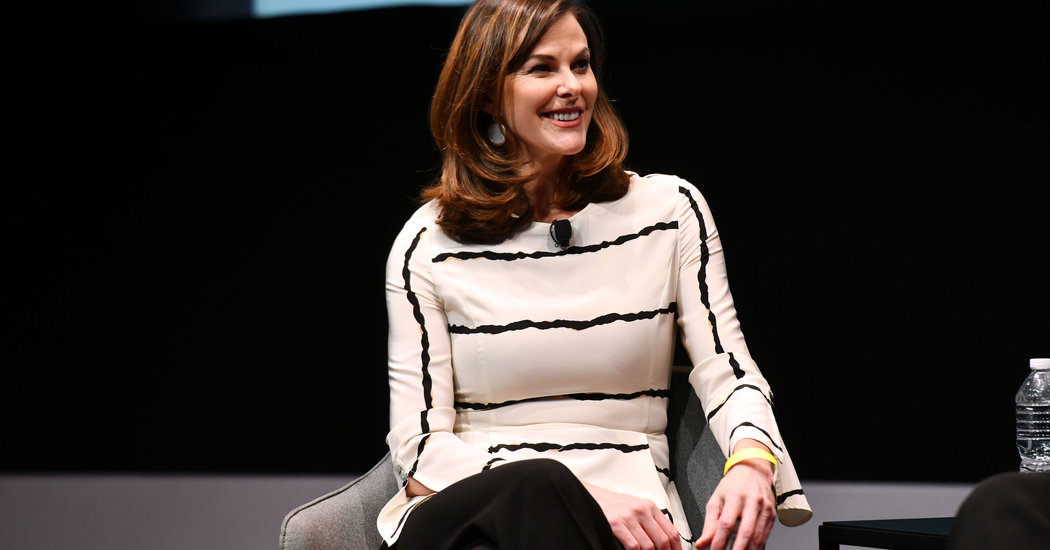SAN FRANCISCO — Facebook and the publishing industry have long been frenemies: Occasionally they teamed up, but mostly they competed.
Now the two sides have formed an uneasy truce.
Facebook on Friday unveiled Facebook News, its latest foray into digital publishing. The product is a new section of the social network’s mobile app that is dedicated entirely to news content, which the company is betting will bring users back to the site regularly to consume news on sports, entertainment, politics and tech.
Facebook News will offer stories from a mix of publications, including The Wall Street Journal and The Washington Post, as well as digital-only outlets like BuzzFeed and Business Insider. Some stories will be chosen by a team of professional journalists, while others will be tailored to readers’ interests over time using Facebook’s machine-learning technology. The New York Times will also work with Facebook to offer its articles in Facebook News.
“We feel acute responsibility because there’s obviously an awareness that the internet has disrupted the news industry business model,” Mark Zuckerberg, Facebook’s chief executive, said in an interview. “We’ve figured out a different way to do this that we think is going to be better and more sustainable.”
Facebook will pay for a range of content from dozens of publishers — including striking some deals well into the millions of dollars — and get local news from smaller publishers in metropolitan markets like Dallas-Fort Worth, Miami and Atlanta.
“Mark Zuckerberg seems personally and professionally committed to ensuring that high-quality journalism has a viable, valued future,” Robert Thomson, chief executive of News Corporation, said in a statement. “It is absolutely appropriate that premium journalism is recognized and rewarded.“
The relationship between Facebook and publishers has been strained. Because Facebook and Google dominate the online advertising market, taking in together as much as 80 percent of the revenue, publishers have viewed the tech giants as stymieing their digital expansions.
Facebook has over the years courted publishers for different journalism initiatives, like Instant Articles — a product in which publishers provided articles that appeared entirely within Facebook — and Facebook Live, which paid newsrooms to hire teams of journalists to use and promote Facebook’s live video products.
But those relationships soured as Facebook often shifted its strategy, leaving publishers feeling abused when the social network abandoned its original plans. After heavily promoting partnerships for video projects, for instance, Facebook decided not to renew some video deals with publishers — with catastrophic effects. Mic, a digital publisher aimed at targeting news-hungry millennials, was forced to sell itself at a deeply discounted valuation after its video content deals were not renewed by Facebook.
Mr. Zuckerberg acknowledged the tension between Facebook and publishers, and he said past experiences informed his current approach.
“It’s not a one-time thing,” he said of the new partnerships with publishers. “That’s why the deals we are structuring are long-term commitments, not two months, not one year, but multiple years.”
He added, “We think we’ve worked out the formula through all these conversations where we now can sustainably pay for content.”
The new Facebook News effort is being led by Campbell Brown, a veteran television journalist who covered politics for NBC and CNN before joining Facebook as head of news partnerships.
Most of the publishing industry’s recent financial struggles can be traced to a shift toward digital ad revenue, which has not compensated for the loss of print ad revenue. Though the tech giants are not the only reason that publishers’ revenues have eroded, even small tweaks in Facebook’s algorithms have an outsize effect on publishers’ web traffic. So when publishers designed their corporate strategies around the whims of the Facebook News Feed, their traffic sometimes plummeted when Facebook changed tack.
Facebook is not alone in now choosing to elevate original reporting. Last month, Google announced that it would give priority to articles that broke news or that had invested considerable resources into reporting over imitative aggregation. Google made clear that the decision was not purely altruistic. Highlighting original reporting, an executive suggested, would make users more likely to trust Google and keep going back to the search goliath.
In March, Apple also introduced a paid news subscription product, Apple News Plus, which provides articles from an array of publishers and costs $10 a month. But many publishers balked at Apple’s terms when it asked for a 50 percent cut of all subscription revenue earned. Though News Corporation joined Apple’s product, other companies — including The Times and The Washington Post — did not.
With Facebook News, the social network said it wanted to avoid some missteps of past news products, which relied heavily on algorithmically generated suggestions without any selection from professional journalists.
“People want and benefit from personalized experiences on Facebook, but we know there is reporting that transcends individual experience,” Ms. Brown said in a blog post. “We want to support both.”
Follow Mike Isaac and Marc Tracy on Twitter: @MikeIsaac and @marcatracy.
Mike Isaac reported from San Francisco and Marc Tracy from New York.
Interested in All Things Tech? Get the Bits newsletter for the latest from Silicon Valley. And sign up for the personal tech newsletter for advice and tips on the technology changing how you live.
Source: Read Full Article
